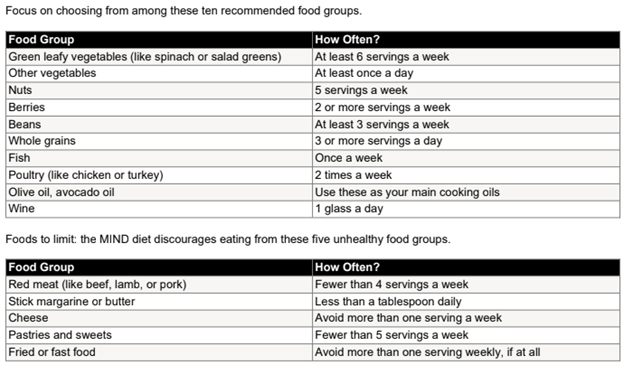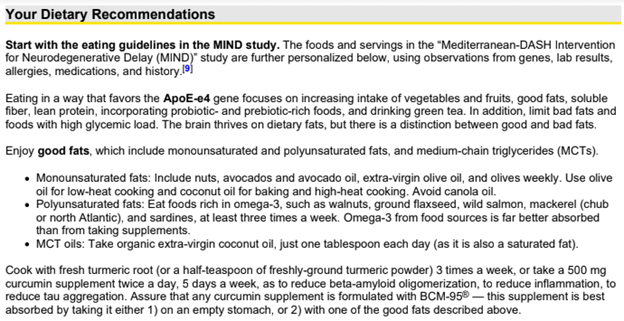
Mind What You Eat With Personalized Diet Recommendations
By Susan Pearsall
The quality of the food we eat can have profound effects on our health. Researchers have identified many links between the consumption of Western-style diets and several chronic diseases: type 2 diabetes, cardiovascular disease, several types of cancer, and Alzheimer’s Disease and Related Dementias (ADRD). Someone with these eating habits tends to consume too much fast food, highly processed (or “junk”) foods, and sugary drinks, and does not eat enough dietary fiber or vitamins and minerals. This type of diet is high in carbohydrates and sugar and often includes too much protein and fat.
The Center for Science in the Public Interest estimates that “nutrition- and obesity-related diseases,” such as heart disease and diabetes, cause 678,000 deaths each year in the U.S. These conditions are also widely believed to contribute to the development of ADRD, primarily by provoking a damaging immune response and restricting blood flow to the brain. But scientists suspect that poor diet can damage cognitive health through other mechanisms as well.
New research is also examining the interactions between nutrition and the trillions of microbes that live in our stomach, intestines, and colon. This “gut microbiome” has been shown to affect the biological mechanisms that drive the symptoms of ADRD. A study published in the March 31, 2023 edition of Scientific Reports asserts that “proinflammatory gut microbiota might promote AD development” by interacting with genes implicated in Alzheimer’s Disease.
A recent systematic review of 955 relevant studies of the past five years found strong links between diet and cognitive health. The authors concluded that “Following a healthy dietary pattern, a high intake of plant-based foods, probiotics, nuts, and omega-3 polyunsaturated fatty acids and a low intake of saturated fats, animal-based proteins, and refined sugars can decrease the risk of neurocognitive impairment.”
What Should We Eat?
Even though nutritionists might disagree about the dangers of cholesterol or a ketogenic diet, a firm consensus has coalesced around the benefits of a Mediterranean-style diet. A New York Times article from January 2023 referred to it as “the bedrock of virtuous eating” and cited its positive effects on “blood sugar, inflammation and body mass index” with accompanying “cognitive improvements — including in attention, alertness and contentment.”
Seeking a coherent approach to using nutrition to preserve brain health, a nutritional epidemiologist developed the MIND Diet by combining a classic Mediterranean diet with the DASH Diet, which is more narrowly focused on reducing blood pressure. When she tested its effects in a 2015 study funded by the National Institute for Aging, participants who followed it strictly had an up to 53% reduction in their risk of developing ADRD. Many studies have since found evidence that she was on the right track.
Both the Mediterranean and DASH Diets place a strong emphasis on plant-based nutrition and encourage adherents to avoid sugar, carbohydrates, and highly-processed foods. In addition to sharply reducing your risk of developing dementia—the acronym stands for Mediterranean-DASH Intervention for Neurodegenerative Delay—there’s a good chance that adopting the MIND Diet will improve your overall health and increase your energy levels.
A Highly Personalized Approach to Cognitive Care
RestoreU care plans from uMETHOD Health include a customized diet plan. These plans not only conform to the MIND Diet, but they also take each individual’s medical history and test results into account. Here’s an example of the summary guidelines that are provided:


A diet with a higher intake of fresh vegetables, berries, fish, nuts, and legumes can lower the odds of cognitive decline and might even provide an extended “health span”—a longer period of life spent in good health. The place to start is with the eating guidelines in the MIND diet. Find out more and get some ideas for meals here.

